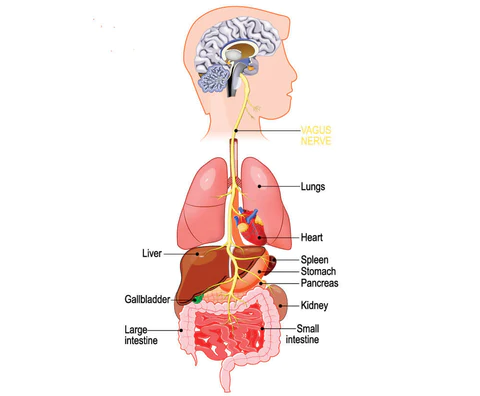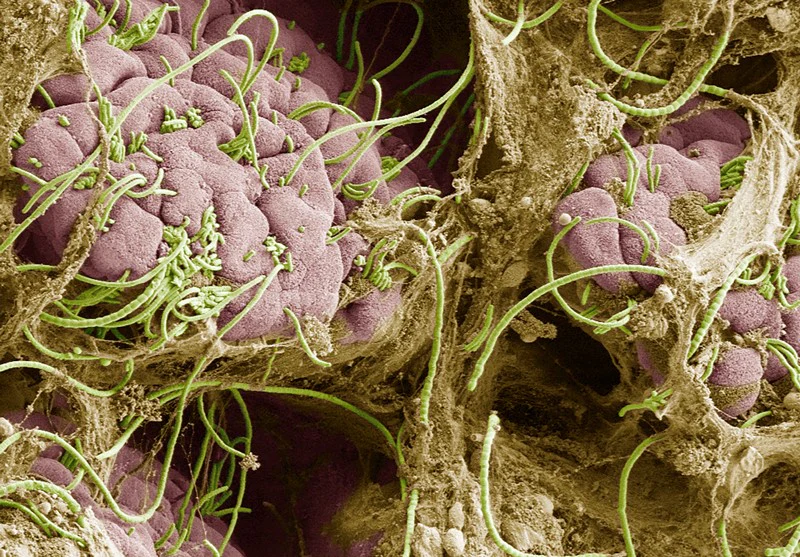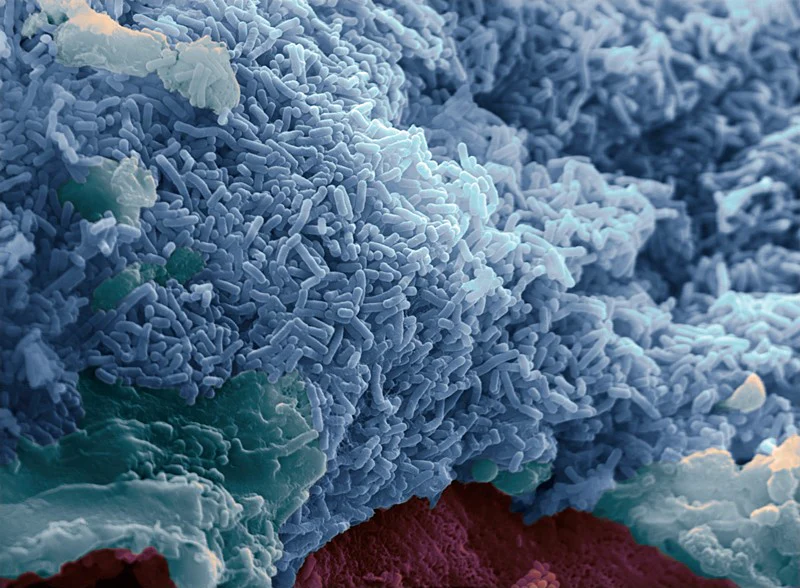It's often claimed that every health problem starts in the gut. But is it possible that bacteria in gut can be present in our brains?
That seems like a scary thought. Trillions of microbes in your gut also produce other chemicals that affect your brain function.
Scientists have been exploring how gut bacteria can influence the brain. Experiments have identified ways that gut microbiome may be responsible for conditions including Parkinson's disease and Autism. Studies also suggest that microbes could help in certain conditions.
Gut microbes and inflammation
Your gut-brain axis is connected via your immune system, and gut microbes play are a significant part of your immune system and inflammation by controlling what is passed into the body and what is excreted.
For example, if your immune system is activated for too long it can lead to inflammation, associated with depression and alzheimer's disease.
If your gut barrier becomes leaky, bacteria and inflammatory toxins such as Lipopolysaccharide (LPS) may cause inflammation if too much of it passes from the gut into the blood.
High LPS in the blood has been associated with depression, dementia and schizophrenia.
What are the possible pathways to the brain?

Parkinson's disease - a strain of Escherichia coli in the gut make a protein, curli, which prompts proteins to 'misfold' transferring the error up the Vagus nerve (connecting the gut to the brain) where the misfolded alpha-synuclein protein, linked to the disease becomes present.
The vagus nerve is one of the biggest nerves connecting your gut to the brain, sending signals in both directions.(2)
One interesting study in mice found that feeding them a probiotic reduced the amount of stress hormone in their blood. However, when their vagus nerve was cut, the probiotic had no effect.(3)
Autism (Autism Spectrum Disorder, aka ASD) reveal studies with mice suggest pregnancy infection can stimulate activity of T-helper 17 cells, part of the immune system. These produce immune molecules which travel to the fetus brain (though to be through the placenta), provoking autism characteristics.
Images shown at a meeting of the Society for Neuroscience showed microscope images of bacteria apparently penetrating and inhabiting the cells of healthy human brains*, raising the question - could this gut bacteria affect brain function and neurological disease?

Segmented filamentous bacteria in the gut (green) overstimulate the immune system of pregnant mice that have an infection, altering the fetus’s brain development.Credit: Dan Littman, Alice Liang, Doug Wei and Eric Roth
The blood-brain barrier
The brain is a complex organ protected by a network of cells which surrounds its blood vessels providing a barrier to the contents of the bloodstream. Should a virus or microbe penetrate the blood-brain barrier, it can cause life-threatening inflammation.
Research suggests that distant microbes, such as those in our gut, may be responsible for mood, behavior, and neurological disease. For example, a disruption in the microbiome could increase the possibility of a rogue protein travelling up a nerve connecting the gut to the brain. This could potentially cause Parkinson’s disease.
Studies have also examined differences between healthy people and those with schizophrenia, discovering rod-shaped bacteria in the subjects brains(1). Researchers wondered if gut bacteria could have leaked from blood vessels into the brain in the hours between a person’s death and the brain’s removal. However, the team found the same bacteria in the brains of healthy mice, which were preserved immediately after the mice were killed. Last, they examined the brains of germ-free mice, which were raised to be barren of microbial life. They were uniformly clean.

The gut bacterium Lactobacillus reuteri is being tested as a treatment for symptoms of autism spectrum disorder in a small trial.Credit: Stephanie Schuller/Alistair Walsham/SPL
Nasal transmission of bacteria to the brain
So how could the bacteria have gotten into the mice’s brain? Researchers aren’t sure, but they believe this bacteria may have been carried from blood vessels into the brain by traveling up nerves from the gut, or possibly coming in via nasal passages.
Examiners haven't concluded if this bacteria is harmful, and they found no signs of inflammation. They also wanted to rule out contamination. For example, could microbes from the air or from surgical instruments travel into the tissue during brain extraction? Researchers plan to hunt for such evidence.
It may be a long time until we have more answers, but for now, we can focus on creating healthy, diverse microbiomes for ourselves.
Prebiotics, Probiotics, and the gut-brain axis
Gut health is connected to brain function, therefore changing your gut bacteria composition may improve brain health.
Some probiotics have been shown to to improve stress, anxiety and depression.(4) A study of patients with irritable bowel syndrome and anxiety were found to benefit with improved symptoms from taking Bifidobacterium longum, a probiotic.(5)
Prebiotics too, typically fibers fermented by gut bacteria are also connected to brain function. a separate study found that by taking galactooligosaccharides over a period of time reduced the production of the stress hormone, cortisol.(6)
References
1. Studies performed after death.
2. https://pubmed.ncbi.nlm.nih.gov/29593576/
3. https://pubmed.ncbi.nlm.nih.gov/21876150/
4. https://pubmed.ncbi.nlm.nih.gov/26706022/
5. https://pubmed.ncbi.nlm.nih.gov/28483500/
6. https://www.ncbi.nlm.nih.gov/pmc/articles/PMC4410136/


